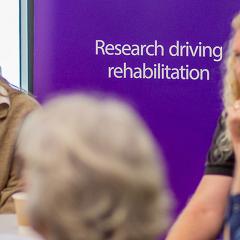It has been known for some time that no two people will recover in exactly the same way after a whiplash injury. Some individuals recover rapidly, often returning to all their usual activities within weeks of injury. For others, the pace of recovery will be much slower.
According to Professor Michele Sterling, people who are susceptible to slow recovery need different treatment than those who recover quickly. Individuals who are more likely to recover quickly require only minimal intervention; providing too much treatment to these individuals actually risks slowing down their recovery. Individuals who are more likely to recover slowly need a more intense program of treatment to accelerate their recovery
According to Professor Sterling, until recently it was not possible to distinguish between individuals who were prone to fast or slow recovery until it was too late. Professor Sterling explained that early and appropriate treatments are key to successful recovery. Early detection of individuals who are prone to slow recovery is important so that appropriate treatment can be offered before the condition becomes chronic. In a series of studies, Professor Sterling and her research team have addressed how best to assess someone’s proneness to fast or slow recovery as soon as possible following injury.
Professor Sterling and her colleagues have developed a ‘clinical prediction rule’ that permits early detection of individuals who are prone to slow recovery. Their research showed that individuals who showed evidence of reported more severe disability immediately after injury, who showed symptoms of hyperarousal and who were older than 35 years of age were more prone to slow recovery.
Professor Sterling has been training physiotherapists to use this clinical prediction rule so that injured individuals who are prone to slow recovery can be identified early. This clinical prediction rule will make it possible for clinicians to put in place a treatment program that will meet the special needs of individuals who are prone to slow recovery following whiplash injury.
References
Ritchie, C., Hendrikz, J., Jull, G., Elliott, J., Sterling, M. (2015). External validation of a clinical prediction rule to predict full recovery and ongoing moderate/severe disability following acute whiplash injury. Journal of Orthopaedic and Sports Physical Therapy, 45, 242 – 250.
Ritchie, C., Hendrikz, J., Kenardy, J., Sterling, M. (2013). Derivation of a clinical prediction rule to identify both chronic moderate/severe disability and full recovery following whiplash injury. Pain, 154, 2198 – 2206.



